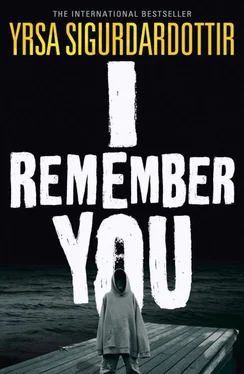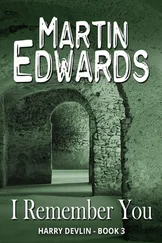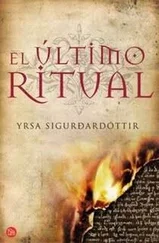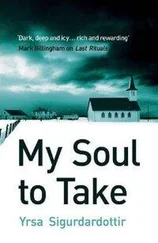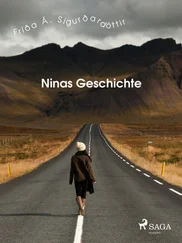‘Yes, winter had certainly set in when it happened. But he hadn’t run off to find his mother, because she was dead by then.’ The man’s eyelids half closed. ‘She died several years before when she tried to save Bernódus’s younger brother from drowning. The child had gone out onto the ice after the fjord froze over and fallen through it, and the woman waded out after him. They both drowned there, and they say that that’s when Bernódus’s father lost his grip and gave in to drink and debauchery. He couldn’t cope with the loss and couldn’t bear to look at his surviving son, who’d had to witness the tragedy unfolding. Someone told me he blamed the boy, thought that he could have done something about it – which was absurd, of course; the boy would never have been able to save his mother and brother. He would have just followed them under the ice and died with them. I don’t know whether the drink gave the man this idea or whether the seed was sown when things started going downhill. But one thing is certain: he never showed his son any affection or treated him like a father should.’ The old man shut his eyes completely. ‘Believe you me, he had to live with his shame forever.’
Freyr needed a moment to digest this. In this respect it was easier to speak to the older generation; short pauses in the conservation didn’t matter. ‘So the boy was blamed by his alcoholic father for the death of his mother and younger brother,’ he said thoughtfully, verbally putting the story together. ‘What tragic circumstances to grow up in.’ Freyr was even starting to suspect that the boy had committed suicide. ‘Didn’t he have a grandmother, grandfather, or other relative he could go and stay with?’
‘The family wasn’t from here and I never heard mention of any other relatives. I expect he had some, but to my knowledge no one knew who they were. The accident that killed the mother and younger son occurred before Bernódus and his father moved here, so I never knew the mother or even met her. They were living in Hesteyri in Jökulfirðir when the mother and her child died.’ The old man lifted his head slightly from the pillow and turned to face Freyr directly. Blue veins stood out in his white skin, which was nearly transparent. ‘I never taught him, so I was never involved in his case, but all of us were certainly aware of him, as his situation was so distressing. And he became even more memorable after his disappearance. It really affected us teachers. The break-in at the school occurred soon afterwards, so it really was a difficult term.’
‘Remind me how much time passed between the two events?’ Freyr had lost track of the dates.
‘Ten days; a fortnight or so? I don’t remember precisely.’
‘Were they thought to have been related in any way?’
‘I don’t recall anyone ever suggesting it. I don’t see how they could have been.’ He turned away from Freyr and let his head droop. The depression that formed beneath it in the soft pillow was barely noticeable. ‘And I wouldn’t think it was likely.’ His voice had faded and although their conversation hadn’t been long, it was clear that he was tired.
There was little to add to this and Freyr prepared to stand up and leave. He hadn’t really got anywhere, except that he was fairly certain that one way or another, the boy had followed his mother and brother and perished at sea. That was the most likely explanation, and more often than not the simplest hypotheses proved to be the correct ones. Before he stood up he asked one more question, partly in the hope that the man had recovered a little and they could talk for a bit longer. ‘Do you know whether Bernódus’s teacher is still alive? She might know something more about the case.’
The old man shook his head weakly. ‘No, she died a long time ago. She died very prematurely, too. You’re several decades too late to get anything out of her.’
‘Did she die at around the same time that Bernódus disappeared and the school was broken into?’
‘No, no. It was quite some time afterwards. Probably around ten years later. She’d had to quit teaching because she lost her sight.’
‘Did she go blind from an illness?’ Freyr recalled that the teacher in the class photo had been rather young-looking, and would barely have been middle-aged ten years on from then. It was extremely unusual for people to go blind at that age from glaucoma or degenerative diseases, but of course there were other conditions that affected the eyes regardless of a person’s age.
‘No, it was an accident. She slipped on the ice in the spring, landed in a peculiar way on some fencing and damaged both her eyes so badly that they couldn’t be saved. She started acting a bit strangely afterwards, the poor thing; said that she’d been pushed, but numerous witnesses stated that no one had been near her. That was why I was asked to take over her class in the autumn. She had to stop teaching.’ The man’s hands twitched for no visible reason. ‘You could say that the accident led to her death, in fact, because later she stepped in front of a car. She had a white stick, but either she wasn’t careful or she became confused, and that was that. While I’m feeding you old gossip, I heard at the time that when they examined the body they discovered that she’d completely lost it, though I found it hard to believe. Just thought I’d mention it, since you’re a specialist in matters of the head and heart.’
Freyr didn’t find this any worse a description of his specialism than the traditional one, psychiatrist . ‘Do you know what happened?’
‘The story goes that she’d inflicted wounds on herself that couldn’t be explained by anything other than mental instability.’ Freyr’s skin prickled unpleasantly. The old man yawned again, even more weakly than before. ‘Actually, she always seemed rather odd, and that’s maybe what started the rumours. She was moody, she favoured some pupils over others and was generally rather cold and uncaring.’
Fearing he knew the answer, Freyr asked what he’d decided would be his final question: ‘What sort of injuries did she have?’
‘A cross. She’d cut a cross in her back. And rather neatly, too, I understand, considering she was blind.’
Exhaustion finally overcame Freyr and the desire to fall into his own bed at home was overwhelming. He’d had enough.
Katrín had never rejoiced so much at any sound as at the din that now came from outside. Líf’s laughter at something Garðar said convinced her that the owner of the hand was no longer standing on the porch. She dared to open her eyes and felt her heartbeat slow down and her breathing become stable. The odour of fish offal seemed to have gone and she enjoyed breathing normally again, after the stench had filled her nostrils. Unlike other odours, she hadn’t grown used to this one; instead it had intensified until Katrín felt as if she had a piece of rotten fish covering her nose. As her fear had increased, so the pain in her foot had diminished, but now that the terror seemed behind her, the pain returned in waves, both there and elsewhere on her bruised body. But most of all she felt like weeping with happiness when the vague outlines of Líf and Garðar appeared in the dark kitchen doorway, their arms full. ‘Weren’t we quick?’ Líf placed two rolled-up sleeping bags and a plastic bag full of things on the floor without entering the room, then started untying her walking boots. The dull scent of cigarette smoke filled the room and Katrín was happy to breathe it in; it was much better than the newly vanished smell of rot.
As far as Katrín was concerned, they couldn’t have been gone any longer, but she didn’t have the heart to say so. ‘I can’t begin to describe how relieved I am to see you. Did you bring the candles?’ Her longing for light was probably no less desperate than Líf’s for nicotine. Her voice quivered to an embarrassing degree and after Líf put on her furry slippers, took a candle from the bag and lit it, Katrín knew that it was her own deathly pale face that caused Líf to take one step back and exclaim in surprise. ‘My foot is killing me,’ she muttered. ‘And there was someone outside. Just before you came.’
Читать дальше
